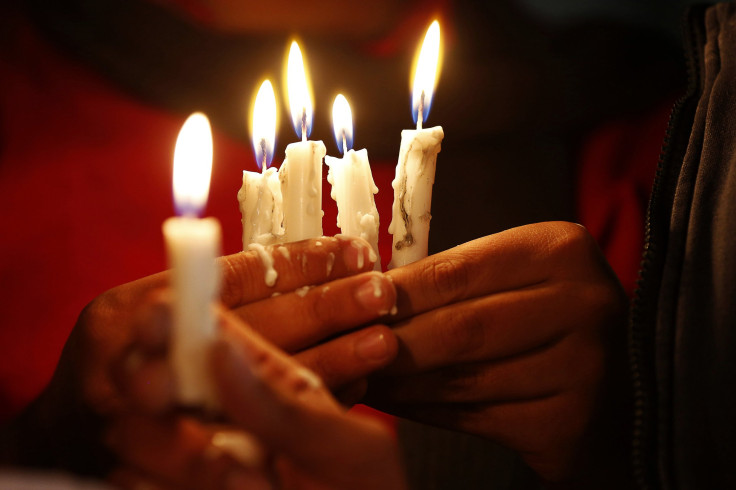Kenji Goto Beheading: Tributes Pour In For 'Brave' Journalist As Japan Vows To Make ISIS 'Pay The Price'

Reacting to the release of a video purportedly showing the beheading of Kenji Goto, who was being held hostage by the Islamic State group, Goto's wife said that she is devastated, but proud of her husband, who had worked as a journalist in several war zones, including Syria, according to media reports.
“I remain extremely proud of my husband, who reported the plight of people in conflict areas like Iraq, Somalia and Syria,” Rinko Jogo reportedly said, on Sunday. “It was his passion to highlight the effects on ordinary people, especially through the eyes of children, and to inform the rest of us of the tragedies of war.”
Friends and relatives of Goto -- who had gone to Syria in October last year to secure the release of his compatriot Haruna Yukawa -- also paid tribute to the 47-year-old journalist.
“He was kind and he was brave,” Shoichi Yukawa, Haruna’s father, reportedly said. “He tried to save my son. It’s utterly heartbreaking.” A video showing Yukawa’s beheading was released by ISIS on Jan. 24, after the Japanese government refused to pay the $200 million ransom initially demanded by the militant group.
“My heart is broken … It is my only hope that we can carry on with Kenji’s mission to save the children from war and poverty,” Junko Ishido, Goto’s mother, said on Sunday, even as several Japanese newspapers issued special editions to break the news of his death, according to media reports.
Goto’s killing was also condemned by several international leaders, including U.S. President Barack Obama, Jordan’s King Abdullah II and British Prime Minister David Cameron.
Japan’s Prime Minister Shinzo Abe also reacted with outrage to the release of the grisly video showing Goto’s beheading and vowed to “make terrorists pay the price,” according to media reports.
“We are deeply saddened by this despicable and horrendous act of terrorism, and we denounce it in the strongest terms … To the terrorists, we will never, never forgive them for this act,” Abe reportedly said.
Meanwhile, the country’s failure to rescue the two hostages also led many to question Japan’s ability to handle an international crisis, Agence France-Presse (AFP) reported.
Takashi Kawakami, a security expert and a professor at Tokyo’s Takushoku University, told AFP that the hostage situation revealed the weakness of Japan’s diplomatic resources in the Middle East.
“The government lacked information and that made it difficult for them to handle the situation,” Takushoku reportedly said, adding that the incident should serve as a “wake-up call” for the Japanese government to “boost intelligence operations at home and overseas.”
© Copyright IBTimes 2024. All rights reserved.






















